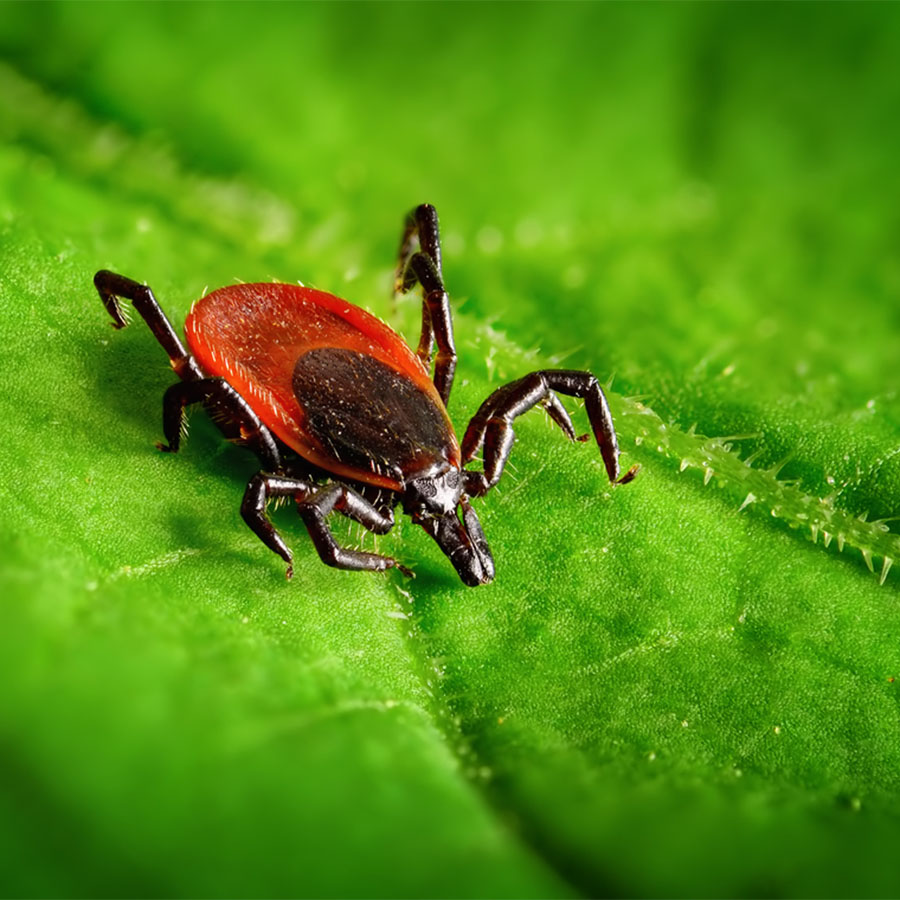Ticks are among the top 10 most dangerous creatures after mosquitoes. They transmit many dangerous diseases. Crimean Congo Haemorrhagic Fever, Lyme Disease, Q fever, Rocky Mountain Fever, Encephalitis, etc... In addition to many diseases, they also cause tick paralysis.
Ticks are fully metamorphosed creatures. Their life cycle is completed as egg-larva-pupa and adult. Mating usually takes place on the creature they suck blood from. Females fall to the ground after mating and lay their eggs.
Ticks are divided into two as soft and hard ticks. Most important diseases are transmitted by hard ticks.
The female of hard ticks lays about 10,000 eggs at a time and dies, while the female of soft ticks lays about 20 to 50 eggs at a time and can lay many eggs throughout her life.
Soft ticks usually parasitise on poultry and suck blood at night. During the day they hide in crevices and cracks. Hard ticks, on the other hand, suck blood from mammals, including poultry. In hard ticks, ticks that attack as hungry larvae fall to the ground as saturated larvae and change their shirts. After the hungry nymphs are sated and change their shirts in the same way, adult females and males climb back into living organisms to suck blood.
In order to protect against tick bites, it is recommended to tuck the trousers' cuffs into socks, shirts and t-shirts into trousers when going to picnics or forest areas. On returning from such areas, the whole body, including the groin, armpits, between the toes and back, should be examined for ticks. If a tick adhered to the body is detected, it is grasped and pulled out from the entry point of the tick into the body with the help of a clamp. The removed tick is killed by throwing it into alcohol etc. Ticks should not be crushed with bare hands, cigarettes should not be blown on them to remove the tick from the body or needles should not be pricked into their bodies. Because, the disturbed animal secretes more saliva and if there is a disease agent in the salivary glands, the possibility of injecting more amounts of the disease agent into the body increases.
In gardens with high tick risk, it is recommended to keep the grass short, to take precautions against rodents that may be the host of ticks, and to check domestic animals for ticks and to spray them regularly with veterinary medicines.



